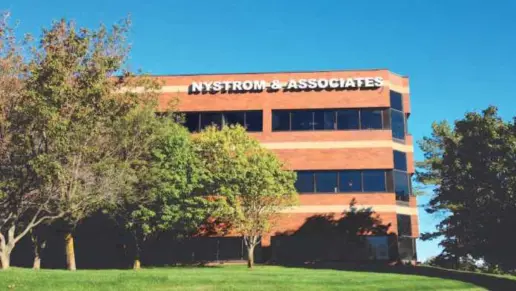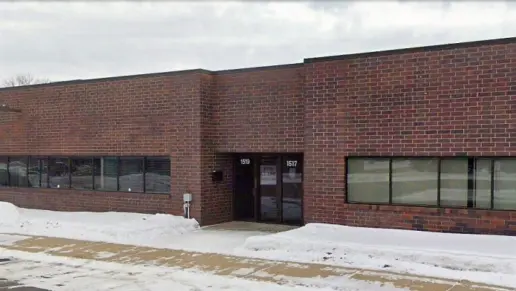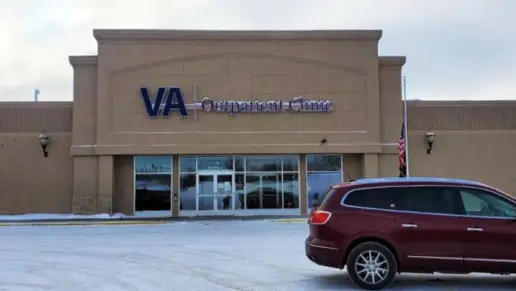I have much love for this place because they gave me the support and care I needed at the right time. Thanks for helping through my healing journey. Thanks for making sure I had everything I needed to recover.
About Hazelden Betty Ford Foundation
Hazelden Betty Ford Foundation in Saint Paul, Minnesota, offers personalized care for adults affected by substance misuse and co-occurring disorders. Their outpatient treatment (OP) options include day treatment (PHP), an intensive outpatient (IOP), and low intensity outpatient (OP) therapy. These programs are great if you’ve mild to moderate substance misuse issues or are moving from inpatient care. They primarily involve individual counseling, group therapy and educational activities.
Individual counseling with a licensed therapist helps you resolve personal issues and set recovery goals. Your therapist will monitor progress and provide recovery support as necessary. Their group therapy draws from clinically proven models like dialectical behavioral therapy (DBT). This helps you tackle negative emotions that trigger substance misuse. The goal is to equip you with the knowledge, skills and resources needed to overcome substance misuse.
Through group interactions and discussions you’ll learn vital skills like anger/stress management, effective communication and solving problems. Group therapy also promotes community support and healthy relationship building. These are important for building strong coping mechanisms, preventing relapse and staying sober.
They may offer family therapy to strengthen your support network through improved communication with loved ones. The programs also incorporate 12 Steps and medication assisted treatment (MAT). The latter uses counseling alongside meds approved by the FDA to support opioids addiction recovery.
Their various outpatient treatment options involve different therapeutic intensities and structures. You can move from more frequent and intense therapy to less as you build skills and confidence to manage your recovery. The day treatment involves five to six hours of daily group sessions for four to five days weekly. It is their highest level of outpatient care if you require considerable support to overcome your substance misuse.
Their intensive outpatient program runs three to four days a week and includes group and individual sessions. They offer specialty programs for LGBTQ+, male/female identifying and those with opioid use disorder. You can expect up to nine hours of weekly group sessions in this program. This makes it a great choice if you want moderate levels of support.
Low intensity outpatient care can be a good fit if you require less frequent clinical care for mild addictive behavior. It involves weekly group sessions and monthly individual counseling. The cool thing about these programs is that sessions are designed to fit your schedule. So you can maintain your work and daily family obligations while receiving treatment. This makes for flexibility and convenience.
Latest Reviews
Rehab Score
Gallery
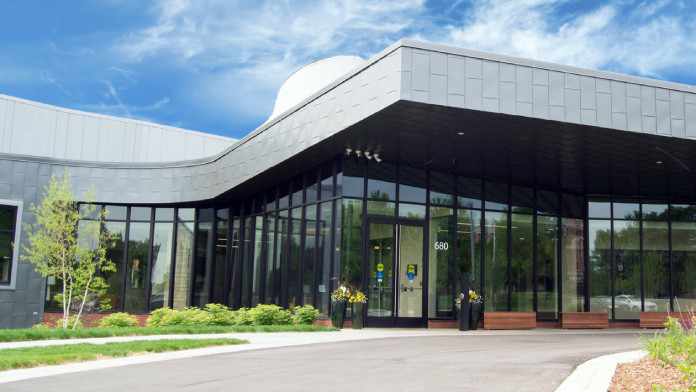
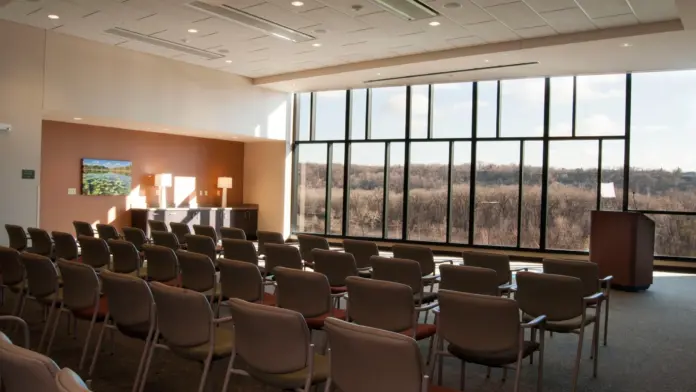
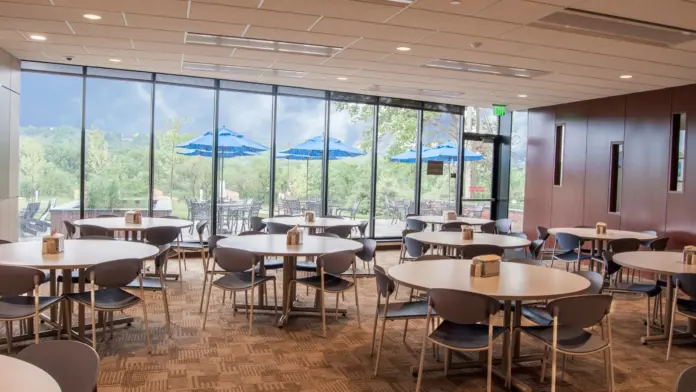
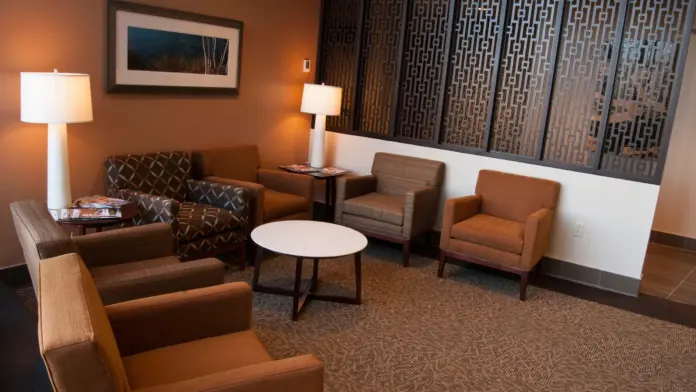
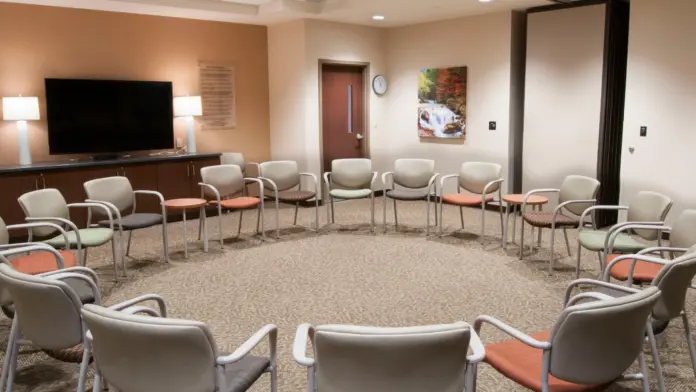
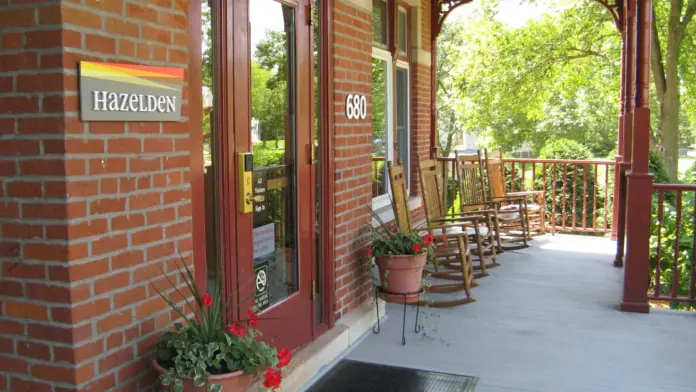
Location
Other Forms of Payment
Private insurance refers to any kind of healthcare coverage that isn't from the state or federal government. This includes individual and family plans offered by an employer or purchased from the Insurance Marketplace. Every plan will have different requirements and out of pocket costs so be sure to get the full details before you start treatment.
Self-pay involves paying for treatment out of your own pocket. You can use savings or credit, get a personal loan, or receive help from family and friends to fund your treatment. If you don't have insurance or your insurance plan doesn't cover a specific program, self-pay can help ensure you still get the care you need.
Addiction Treatments
Levels of Care
Treatments
The goal of treatment for alcoholism is abstinence. Those with poor social support, poor motivation, or psychiatric disorders tend to relapse within a few years of treatment. For these people, success is measured by longer periods of abstinence, reduced use of alcohol, better health, and improved social functioning. Recovery and Maintenance are usually based on 12 step programs and AA meetings.
Drug addiction is defined as an inability to stop using drugs even though it causes negative consequences in your life. Drug rehab in Minnesota provides treatment for drug addiction in a variety of settings including inpatient treatment and outpatient treatment.
Many of those suffering from addiction also suffer from mental or emotional illnesses like schizophrenia, bipolar disorder, depression, or anxiety disorders. Rehab and other substance abuse facilities treating those with a dual diagnosis or co-occurring disorder administer psychiatric treatment to address the person's mental health issue in addition to drug and alcohol rehabilitation.
A combined mental health and substance abuse rehab has the staff and resources available to handle individuals with both mental health and substance abuse issues. It can be challenging to determine where a specific symptom stems from (a mental health issue or an issue related to substance abuse), so mental health and substance abuse professionals are helpful in detangling symptoms and keeping treatment on track.
Opioid rehabs specialize in supporting those recovering from opioid addiction. They treat those suffering from addiction to illegal opioids like heroin, as well as prescription drugs like oxycodone. These centers typically combine both physical as well as mental and emotional support to help stop addiction. Physical support often includes medical detox and subsequent medical support (including medication), and mental support includes in-depth therapy to address the underlying causes of addiction.
Programs


Clinical Services
Therapists often use cognitive behavioral therapy in Minnesota to treat substance use disorders because it can help clients quickly identify challenges and ways to cope with them. Its structured, specific methods require fewer sessions than other types of therapy.
Dialectical Behavior Therapy (DBT) is a modified form of Cognitive Behavioral Therapy (CBT), a treatment designed to help people understand and ultimately affect the relationship between their thoughts, feelings, and behaviors. DBT is often used for individuals who struggle with self-harm behaviors, such as self-mutilation (cutting) and suicidal thoughts, urges, or attempts. It has been proven clinically effective for those who struggle with out-of-control emotions and mental health illnesses like Borderline Personality Disorder.
Group therapy is any therapeutic work that happens in a group (not one-on-one). There are a number of different group therapy modalities, including support groups, experiential therapy, psycho-education, and more. Group therapy involves treatment as well as processing interaction between group members.
In individual therapy, a patient meets one-on-one with a trained psychologist or counselor. Therapy is a pivotal part of effective substance abuse treatment, as it often covers root causes of addiction, including challenges faced by the patient in their social, family, and work/school life.
Trauma therapy addresses traumatic incidents from a client's past that are likely affecting their present-day experience. Trauma is often one of the primary triggers and potential causes of addiction, and can stem from child sexual abuse, domestic violence, having a parent with a mental illness, losing one or both parents at a young age, teenage or adult sexual assault, or any number of other factors. The purpose of trauma therapy is to allow a patient to process trauma and move through and past it, with the help of trained and compassionate mental health professionals.
Life skills trainings involve all the skills a person must have in order to function successfully in the world. These include time management, career guidance, money management, and effective communication. Truly successful addiction recovery is based on the ability to not only live substance-free, but to thrive. Life skills teaches the practical necessities of functioning in society, which sets clients up for success in life, and therefore sobriety.
Recreational therapy supports addiction recovery by giving you enjoyable activities that improve your overall well being. Treatment centers may include team sports, arts and crafts, or outdoor activities to help reduce your cravings, alleviate stress, and build a supportive community network that helps maintain long term sobriety.
Experiential therapy is a form of therapy in which clients are encouraged to surface and work through subconscious issues by engaging in real-time experiences. Experiential therapy departs from traditional talk therapy by involving the body, and having clients engage in activities, movements, and physical and emotional expression. This can involve role-play or using props (which can include other people). Experiential therapy can help people process trauma, memories, and emotion quickly, deeply, and in a lasting fashion, leading to substantial and impactful healing.
Nicotine replacement therapy in Minnesota addresses physical dependence on nicotine. Paired with support systems to address the psychological aspects of dependence, they can be an effective tool to help you quit smoking. Options include nasal sprays, inhalers, gum, and lozenges.
Amenities
-
Residential Setting
-
Private Setting
Accreditations

The Joint Commission, formerly known as JCAHO, is a nonprofit organization that accredits rehab organizations and programs. Founded in 1951, the Joint Commision's mission is to improve the quality of patient care and demonstrating the quality of patient care.
Joint Commission Accreditation: Yes
Contact Information
680 Stewart Avenue
Saint Paul MN, 55102
